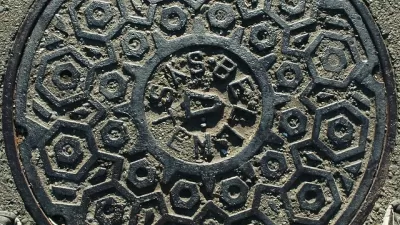Some planning jargon actually clarifies rather than confuses.

Today, I read a fascinating article by Josh Cohen at Next City, titled "What Planning Jargon Do You Wish to See Disappear?". The article describes eight terms as questionable.
For example, Cohen criticizes the common use of the word "livability." He points out that "livability" is an inherently vague term: some people think sprawl is livable, others prefer neighborhoods that are dominated by single-family homes but still more walkable than most suburbs, while others prefer more compact development. In addition, there are substitute terms that are just as effective as "livability" in conveying their meaning: if you think walkable neighborhoods are more livable than sprawl, why not just say you prefer walkable neighborhoods instead?
Admittedly, even "walkability" is somewhat ambiguous—but even so, this term is not as all-encompassing as "livable." For example, a neighborhood with no sidewalks and wide streets dominated by 40 mph traffic might be considered livable by those who revere speedy driving, but it is certainly not walkable.
Cohen also criticizes some terms with a clear meaning that are nevertheless obscure to non-planners. For example, he criticizes the use of the term "cycletrack" as a synonym for "bike lane separated from traffic," because "a cycletrack is likelier to evoke an image of cyclists racing in a velodrome than a bike lane with planters and curbs." I agree; here, a synonymous phrase is less obscure and more widely understood.
But he also criticizes terms merely because they are not widely known. For example, Cohen rejects the use of the term "stroad" to describe streets with fast traffic, because "for most everyone else in the world, roads and streets are synonymous and a portmanteau of them means nothing." In other words, most people don't know what a stroad is. I agree that most Americans don't know what a stroad is—but every non-obscure term was once obscure. The genius of the word "stroad" is that it conveys a one-word mental picture of something that would otherwise require a sentence to describe—a street where cars travel so rapidly as to endanger pedestrians, but which is not a limited-access highway (which means that street lights ensure constant stop-and-go traffic, thus making both pedestrians and drivers unhappy.) I wish every American knew what a stroad was, and I am happy to help lead readers in this direction!
The term "stroad" illustrates why the creation of a new word can sometimes be a good thing: it allows us to take a complex idea and describe it in one vivid word. The best "jargon words" clarify; the worst are so vague that they increase, rather than reduce, reader confusion.

Planetizen Federal Action Tracker
A weekly monitor of how Trump’s orders and actions are impacting planners and planning in America.

Congressman Proposes Bill to Rename DC Metro “Trump Train”
The Make Autorail Great Again Act would withhold federal funding to the system until the Washington Metropolitan Area Transit Authority (WMATA), rebrands as the Washington Metropolitan Authority for Greater Access (WMAGA).

The Simple Legislative Tool Transforming Vacant Downtowns
In California, Michigan and Georgia, an easy win is bringing dollars — and delight — back to city centers.

The States Losing Rural Delivery Rooms at an Alarming Pace
In some states, as few as 9% of rural hospitals still deliver babies. As a result, rising pre-term births, no adequate pre-term care and "harrowing" close calls are a growing reality.

The Small South Asian Republic Going all in on EVs
Thanks to one simple policy change less than five years ago, 65% of new cars in this Himalayan country are now electric.

DC Backpedals on Bike Lane Protection, Swaps Barriers for Paint
Citing aesthetic concerns, the city is removing the concrete barriers and flexposts that once separated Arizona Avenue cyclists from motor vehicles.
Urban Design for Planners 1: Software Tools
This six-course series explores essential urban design concepts using open source software and equips planners with the tools they need to participate fully in the urban design process.
Planning for Universal Design
Learn the tools for implementing Universal Design in planning regulations.
Smith Gee Studio
City of Charlotte
City of Camden Redevelopment Agency
City of Astoria
Transportation Research & Education Center (TREC) at Portland State University
US High Speed Rail Association
City of Camden Redevelopment Agency
Municipality of Princeton (NJ)






























